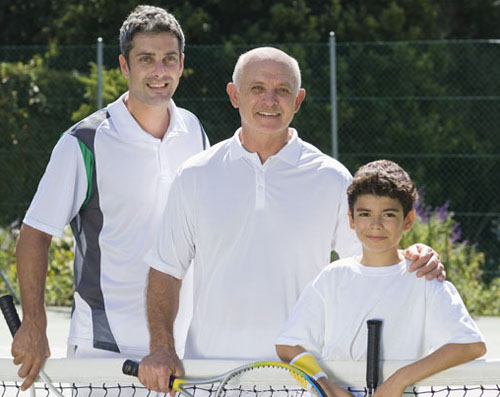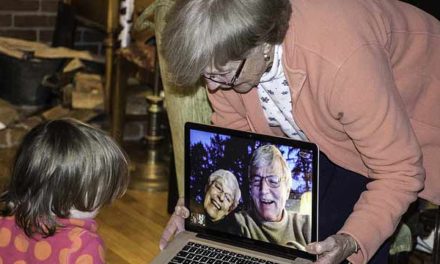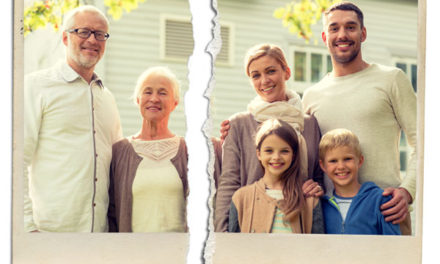Colin is 11 and he loves tennis. Not long ago, his grandparents were visiting, and Colin asked if they could watch him practice. So Colin and his dad, Brian, got their racquets and took Grandma and Grandpa to the high school courts. They all had a great time.
Later, when they were back at the house and Colin was somewhere else, Brian was talking to his father about their tennis excursion. He said, “Colin isn’t really a natural at tennis, but he’s getting better. If he works hard, he could be pretty good.”

His dad’s response surprised him. That grandpa laid some wisdom on his son. He said,
“Yes, but the best thing is that it’s something the two of you can do together.”
This simple exchange highlights the difference in perspective between parents and grandparents. Parents are often concerned about helping their children learn and grow, develop skills and achieve their dreams. As veteran parents ourselves, we know that’s a good thing; there’s a need for that. It’s important to nurture children’s abilities and instill in them a healthy attitude about the incredible possibilities their future may hold. Spending time and resources to help them excel at something is a good investment.
As grandparents, we often see the bigger picture.
Colin’s granddad knew that, no matter what that young boy pursues and achieves in life—tennis or architecture or music or whatever—it will go better for him if he has a positive relationship with his dad.
Part of our role as grandparents is to share wisdom. And we know that, twenty or thirty years down the road of life, the things that will likely matter even more are good relationships, spending time together, and giving children the security to pursue whatever they’re interested in with confidence.
What does this mean for us as grandparents in practical terms?
For one thing, it means sharing our perspective.
And this might sound simple, but it isn’t. Often, our adult children aren’t open to hearing our thoughts about certain topics. Maybe it comes across like we’re giving them advice or we expect them to parent their children a certain way. And that’s always a tricky proposition, with the potential to put up roadblocks in our relationship with them (and possibly our relationships with our grandkids).
Instead, maybe think of it as scattering seeds, where some of our words of wisdom will be heard and heeded, and others likely won’t—and that’s okay. But if we scatter a lot of seeds, we increase the likelihood that something we say will make a difference and benefit them.
We can also take positive action.
If we believe our grandkids’ education is important, we can invest time and resources to help them, whether that’s buying an expensive calculator that they need or becoming a designated reading partner. Or, like in the tennis example above, if we want to encourage our adult children to spend more quality time with our grandkids, we can volunteer to watch the other kids while they do something together or buy them tickets to go do something they enjoy.
Maybe most of all, the best action we can take will be setting a good example. Let’s make sure our actions and habits speak loudly and clearly about what we believe. Let’s live contagious lives that will influence our children and grandchildren today and leave a positive legacy that will be long remembered.
How have you tried to share wisdom with your children and grandchildren? How did it go? Share your insights and encourage another grandparent on our Facebook page.




